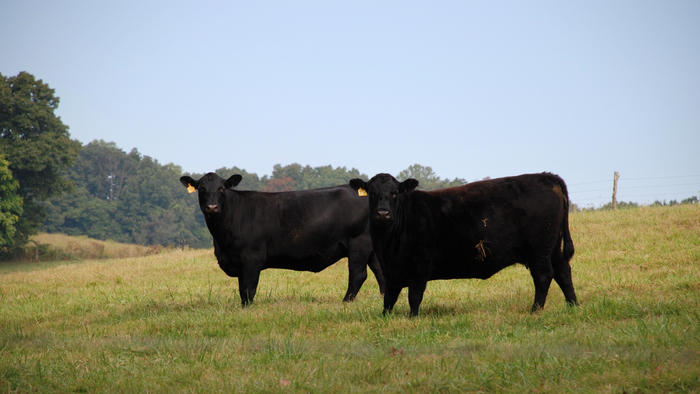Beef cattle producers are all too familiar with economic losses stemming from uncontrollable events such as drought and disease; however, losses due to rapid price declines have historically been the primary source of economic losses for U.S. cattle producers. While studies have shown price risk management tools can be effective in reducing price-decline losses, these tools are seldom used, especially by producers with small- and medium-sized operations. In an effort to improve the economic sustainability of these producers, a University of Tennessee Institute of Agriculture research team has been awarded a $650,000 grant to explore innovative price risk management tools and ultimately help producers make informed and effective risk management decisions.

Credit: Tina Johnson
Beef cattle producers are all too familiar with economic losses stemming from uncontrollable events such as drought and disease; however, losses due to rapid price declines have historically been the primary source of economic losses for U.S. cattle producers. While studies have shown price risk management tools can be effective in reducing price-decline losses, these tools are seldom used, especially by producers with small- and medium-sized operations. In an effort to improve the economic sustainability of these producers, a University of Tennessee Institute of Agriculture research team has been awarded a $650,000 grant to explore innovative price risk management tools and ultimately help producers make informed and effective risk management decisions.
The researchers will conduct a national survey of beef cattle producers to identify barriers to adopting price risk management tools, assess perceptions of tool effectiveness, and learn how these tools could be changed to be more usable — the first known study to ascertain this vital information. Beef producers will also be asked how hypothetical changes to risk management tools would affect subsequent adoption.
Survey results will inform the data-driven development of a free mobile application containing information needed for making informed and effective risk management decisions. The long-term goal of this project is to improve U.S. beef cattle producers’ economic sustainability through research on and education of price risk management, especially for producers with small- and medium-sized operations.
“We are thankful for the opportunity to ask U.S. beef cattle producers about ways to help them reduce losses from sudden price declines,” said Chris Boyer, associate professor and lead researcher in the Department of Agricultural and Resource Economics. “This survey is simply about gathering information to better serve U.S. beef producers through education, policy design, and making information easily available through a mobile application.”
In addition to Boyer, team members include Karen DeLong, Andrew Griffith and Charley Martinez, all from the Department of Agricultural and Resource Economics.
The three-year grant is funded by USDA’s National Institute of Food and Agriculture, which provides leadership and funding for programs that advance agriculture-related sciences. Hongwei Xin, dean of UT AgResearch, praised the researchers for focusing their efforts on tools that will help small- and medium-sized operations. “These ranchers are the backbone of the U.S. beef economy,” he said. “Anything we can do to help their profitability helps all U.S. producers and consumers.”
Through its land-grant mission of research, teaching and extension, the University of Tennessee Institute of Agriculture touches lives and provides Real. Life. Solutions. utia.tennessee.edu.




